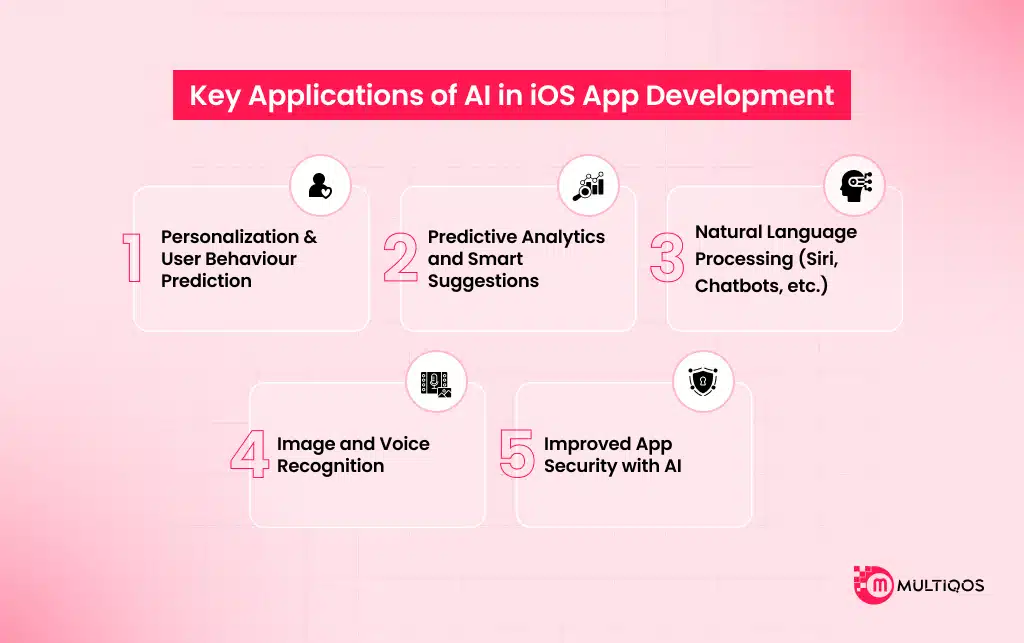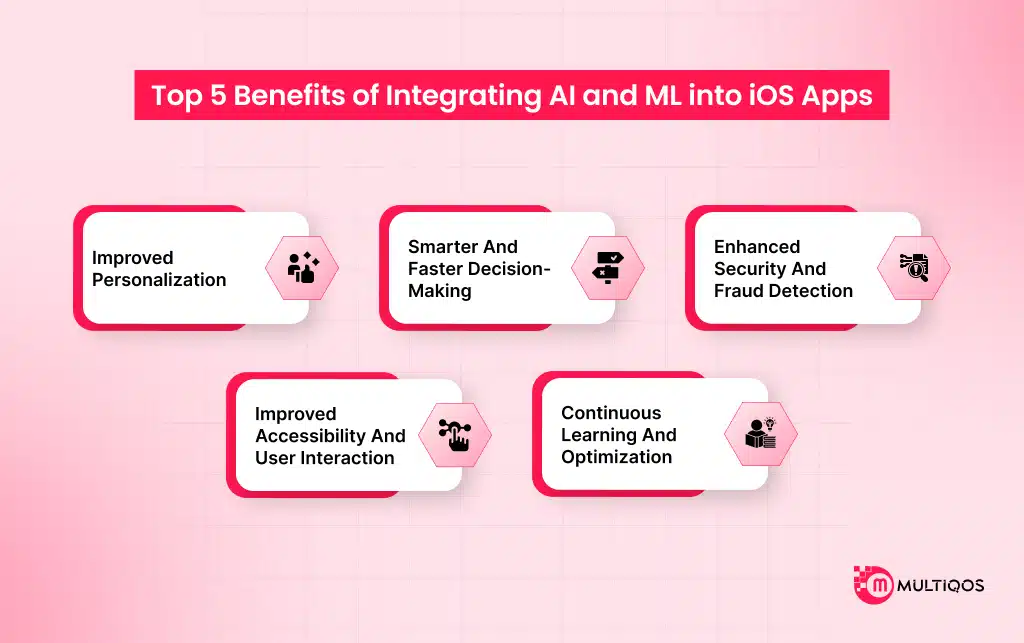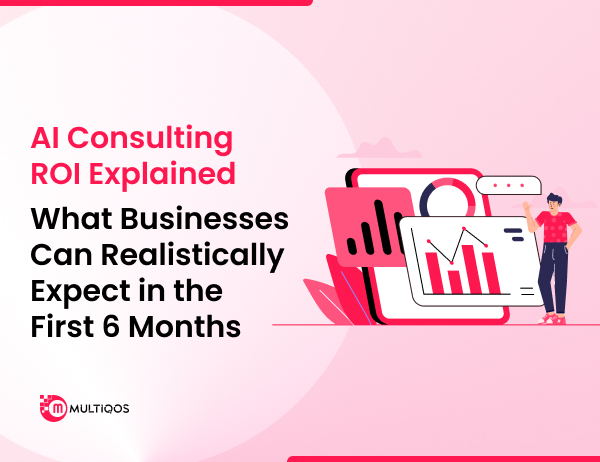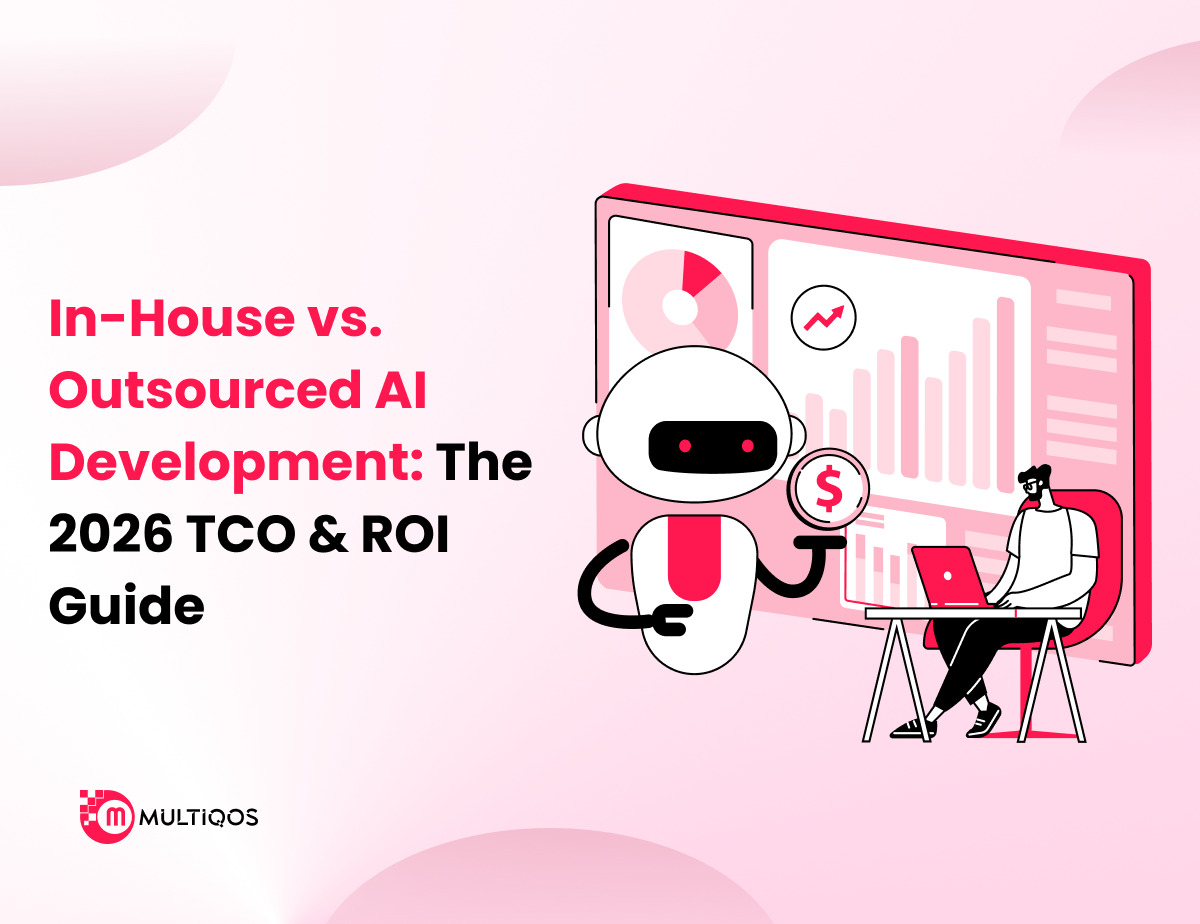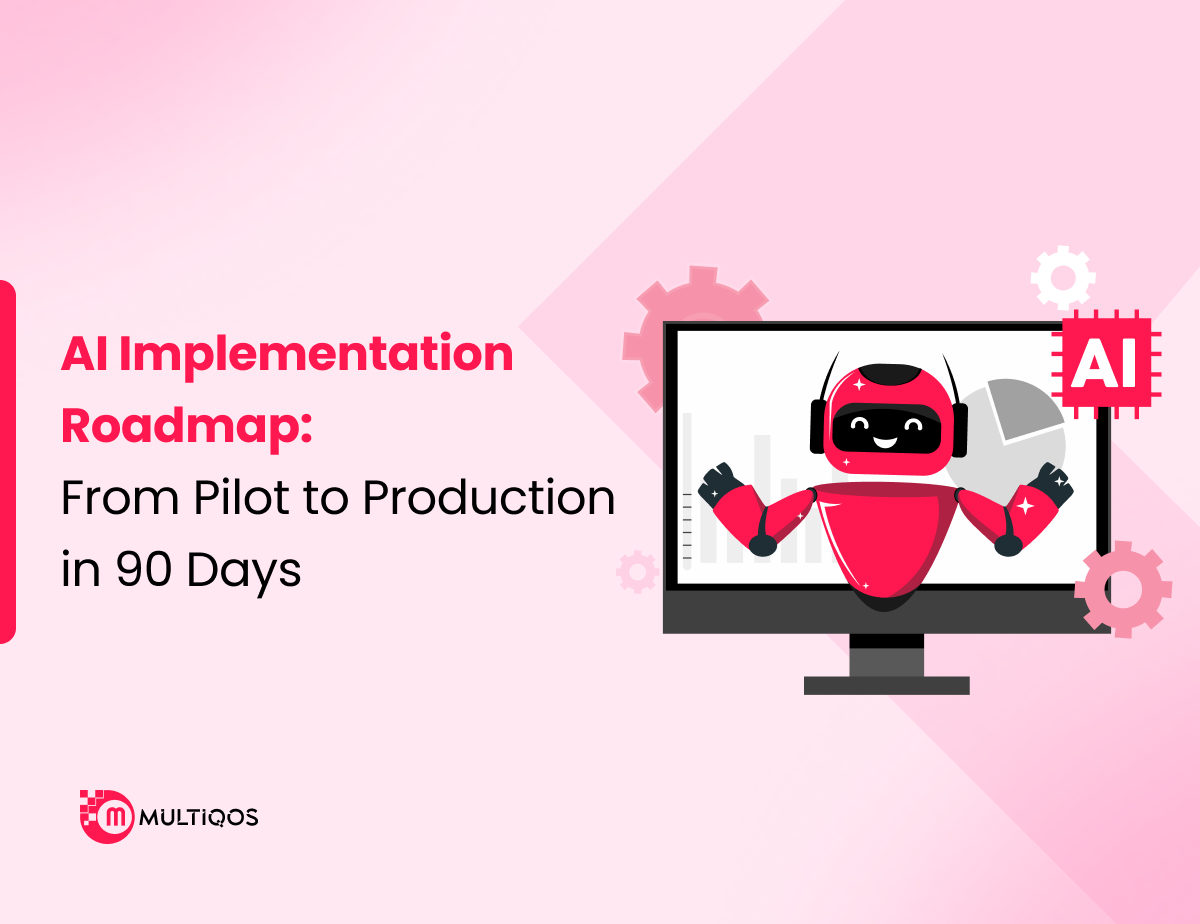The Role of AI and Machine Learning in iOS App Development
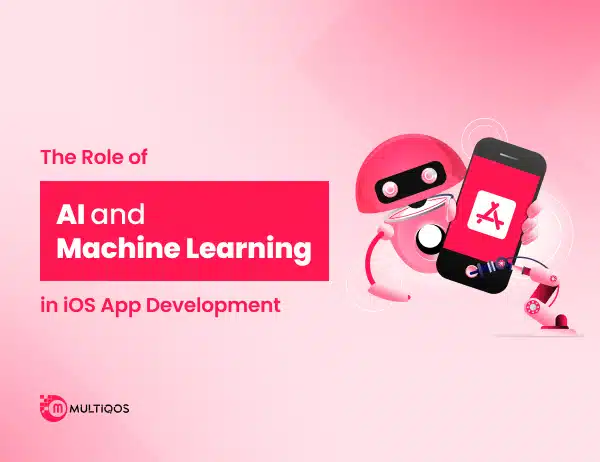
Summary:
This blog post contains some thoughts on how AI/ML has changed the game on iOS development! Between advancing user personalization and predictive analytics, automating app functionality, and enhancing security, AI in iOS App Development is revolutionizing the process in every way.
If you’re a developer, a business leader, or a tech enthusiast, this article provides unique perspectives on how AI and ML are transforming the mobile experience across Apple platforms.
Introduction
In today’s lightning-speed digital world, with so many new apps, users have higher expectations— they want mobile apps to be more intelligent, faster, and more intuitive. This demand causes a seismic change in what the apps we use on our iOS devices look like and how they’re built, with artificial intelligence (AI) and machine learning (ML) leading the way. From custom content suggestions and voice recognition to real-time language translation and predictive text, AI in iOS App Development is ushering in the way we communicate with mobile devices.
In this blog post, we will outline AI and ML’s impact on the iOS ecosystem, the advantages they provide developers and users, and a look at how intelligent mobile apps will evolve in the future.
How AI and ML Work Together for iOS App Development?
Artificial Intelligence and Machine Learning together create a dynamic pair that is revolutionizing iOS app development. AI endows programs with human-like smarts to comprehend and react, whereas ML empowers apps to grow wiser from user information over time. Individually, they contribute significantly to AI in iOS app development through supporting more insightful choices, furnishing custom experiences for each person, and handling complicated jobs independently, resulting in more natural and effective mobile programs.
- AI allows for human-like decision-making and behavior in iOS apps.
- ML enables apps to learn from your data to automatically and continuously improve app functionality.
- Together, they can make personalization — things like tailored content and recommendations — more effective.
- They allow voice and image processing inside iOS applications.
- AI/ML increases user retention through behavior-driven customization.
- They enable real-time analysis and intelligent predictions.
- Through Apple’s Core ML, developers can easily bring ML models into iOS apps.
Key Applications of AI in iOS App Development
AI in mobile app development platforms paved new horizons for user experience, functionality, and security of iOS apps. By utilizing the capabilities of AI in iOS App Development, developers are developing more and more intuitive and responsive apps that are more intelligent, adapt to user behavior, and deliver real-time value for the users.
1. Personalization & User Behaviour Prediction
One of the most powerful applications of AI in iOS is the personalization of content and interactions, leveraging user preferences, behaviour, and usage. This applies to personalized news feeds, shopping experiences, and even dating apps.
2. Predictive Analytics and Smart Suggestions
AI in iOS app development allows applications to predict user needs and make suggestions timely manner—whether that’s suggesting the next song you would like to listen to, suggesting the most frequently called contact, or optimizing workflow for app use. These predictions increase usability and help apps feel more responsive and smarter.
3. Natural Language Processing (Siri, Chatbots, etc.)
The magic of AI apps for iPhone, like Siri, chatbots, and other human-like programs, is closely related to the concept of natural language processing (NLP). This is not just increasing accessibility but driving simplified communication with devices.
4. Image and Voice Recognition
Visual and audio intelligence is a hallmark of modern AI apps iPhone users use on a daily basis. Cutting-edge AI specifically designed for iOS enables features such as facial recognition for security, voice search and real-time translation.
5. Improved App Security with AI
Amid a rising tide of digital threats, AI for iPhone becomes even more important to recognize abnormalities, detect threats, and protect your privacy and data in real-time. Security in iOS apps can be made stronger using artificial intelligence to combat fraud, unauthorized access, and more.
Top 5 Benefits of Integrating AI and ML into iOS Apps
The fusion between AI and machine learning is breaking new grounds in what can be achieved within AI in iOS App Development. Increasingly, it’s not just about doing AI for AI’s own sake, but for serving other, more practical purposes, such as in the world of mobile apps, which are more intelligent and responsive than ever thanks to the power of AI technologies.
1. Improved Personalization
When integrating AI in iOS, developers can build Apps that will learn from user-specific interests and users, providing a personalized experience with dynamically loading views and tailored experiences that will drive engagement and satisfaction.
2. Smarter and Faster Decision-Making
Based on value-based analysis, AI in iOS app development allows applications to predict what the user wants and act accordingly in real time. And whether it’s intelligent search, personalised suggestions, or a customised workflow, AI makes the tap even more powerful.
3. Enhanced Security and Fraud Detection
Security is paramount, and AI for iPhone works to secure user data by detecting anomalies and threats before they arise. Real-time monitoring and behavior analysis are the key to further secure and reliable iOS applications.
4. Improved Accessibility and User Interaction
Voice control, natural language understanding, and gesture recognition are working together to give users of AI apps iPhone-like systems that are more accessible or inclusive. These features are designed to help all users access apps more easily by navigating and interacting with them.
5. Continuous Learning and Optimization
We’ve spent time creating AI apps for iPhone, but most of these cannot learn from their users and only improve when they are updated with a new version. This flexible software “learns” from users, ensuring that apps are up-to-date and responsive to user needs.
Final Thoughts
With advancements in mobile technology, the inclusion of AI and machine learning is not just optional—it’s a necessity. With user experience personalization, predictive analytics, security, and NLP (natural language processing), AI and ML are unlocking whole new realms of what iOS apps can accomplish.
Adoption and integration of these technologies enable developers and businesses to be more competitive by assisting in building smarter and intuitive applications. If you are interested in developing smart mobile solutions, having a reliable AI/ML development company by your side can help you innovate faster and pave the road to long-term success in the iOS marketplace.
Frequently Asked Questions
iOS apps are using AI to provide capabilities such as recommendation engines, voice-enabled assistants, image recognition, predictive analytics, and even instantaneous decision making. It makes apps smarter, more user-focused and efficient.
AI is concerned with making machines capable of simulating human intelligence, and ML is a subset of AI that makes the machines learn from data. In iOS applications, AI is used for natural language processing and such, for machine learning models to constantly improve over time with user interaction and data analytics.
Popular examples include Siri (voice assistant), Apple Photos (facial recognition), and third-party apps like Replika (AI chatbot) and Prisma (AI photo editing). These apps use AI for personalization, automation, and enhanced interaction.
Popular examples such as Siri (voice assistant), Apple Photos (facial recognition), and third-party apps like Replika (AI chatbot) and Prisma (AI photo editing). These apps leverages AI for personalisation, automation and better engagement.
To start creating high-end AI-powered iOS apps, you’ll want to hire iOS app developers with Swift, Core ML, and machine learning integration experience. Whether you’re beginning from scratch or improving an app you’ve already built, working with seasoned developers leads to better performance, smarter features, and quicker delivery.
Get In Touch


